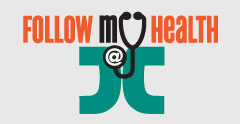Author
Wardlow, Bethany Ann M.D.
Prevention: The New Approach to Primary Care
Sometimes, the most important treatment we can give those we love is prevention. According to the Centers for Disease Control and Prevention, 70% of all medical costs are related to preventable causes—smoking, physical inactivity, unhealthy food choices and portion size or stress. Quitting smoking, increasing physical activity, making healthier dietary decisions and managing stress can reduce healthcare expenses before a patient ever requires hospitalization.
By shifting its focus to prevention, the healthcare system can deliver higher quality and more personalized care to patients who need it most. Most efforts at prevention are focused on real-world choices that can maintain the good health of patients thereby hopefully preventing serious disease complications. If we patients and doctors improve their relationships and change negative habits, we could enter a new era of health.
Close to half of Americans will be diagnosed with cancer in their lifetimes, and approximately half of all cancers are preventable. Tobacco use accounts for the majority of those cases. It contributes to ten types of cancer, along with cardiovascular disease, lung disease, osteoporosis and other problems, according to a recent report by the Robert Wood Johnson Foundation. Smoking is the number one cause of preventable deaths in this country, and cessation reduces risks substantially.
Beyond smoking, diet and exercise are also key components of healthy living. More than one-third of American adults and more than 15% of children are obese. They face an increased risk of heart disease, stroke, Type 2 diabetes and various cancers. If all Americans stopped smoking, exercised on a regular basis and made healthier food choices, the report estimates that 80% of heart disease and Type 2 diabetes cases as well as 40% of cancers could be eliminated.
Vaccinations are also an important aspect of prevention. Vaccinations for the 2012-2013 flu season have begun. The flu vaccine is recommended annually for patients six months and older. This is a vital step of preventive medicine as complications from the flu can be potentially life-threatening. Flu seasons are generally unpredictable in relation to incidence, timing and strain specificity. Flu usually peaks between the months of October and May. Currently, flu activity in our area is low. However, vaccination is recommended before the beginning of flu season.
The Jackson Clinic welcomes referrals and offers a wide variety of preventive screenings and treatments for our patients. At our South Jackson location, Dr. Wardlow and Dr. Russell can advise patients on age-appropriate preventive screenings as well as administering recommended vaccinations. A few important, recommended screenings offered at Jackson Clinic-Family Practice South are listed below:
- Blood pressure screening
- Cholesterol screening
- Diabetes screening
- Referrals for bone density scans, mammograms and colorectal cancer screening
- Vaccines and Immunizations, including pneumonia, shingles, tetanus and flu
Our hours are 9:00 a.m. to 6:00 p.m., Monday through Friday. Call 731-423-5585 to make an appointment, or just come in—walk-ins are welcome.

